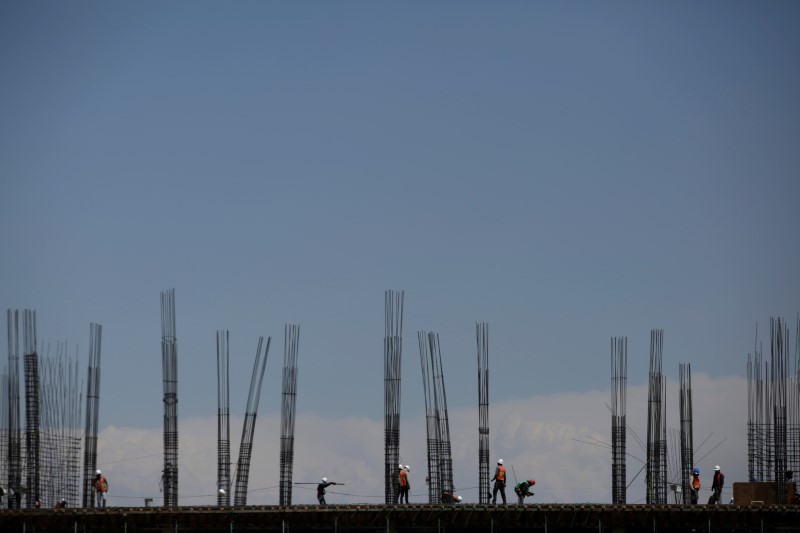Investing.com’s stocks of the week
MEXICO CITY (Reuters) - Mexico's economy contracted more than previously thought in the third quarter due to the impact from storms and quakes on the oil and tourism industries, the government said on Friday, adding to concerns that stalled NAFTA talks are hurting growth.
Third-quarter gross domestic product shrank by 0.3 percent compared with the previous quarter, the first contraction in almost two years. The economy grew 1.5 percent compared with the same period a year earlier, the slowest pace of growth since the fourth quarter of 2013.
Mexican stocks (MXX) were down nearly 0.8 pct following the data.
Mexico was struck by devastating September earthquakes and hurricanes in August and September that affected the oil industry, denting economic activity.
"This deceleration is largely explained by a temporary and limited impact from the natural disasters," the Finance Ministry said in a statement on Friday, citing the oil, education and tourism industries.
The ministry added that impact appeared to have dissipated and that it was maintaining its 2017 economic growth forecast of 2.0 percent to 2.6 percent.
However the central bank is less optimistic, trimming its growth forecast for 2017 to between 1.8 percent and 2.3 percent this week due to the natural disasters and the impact on investment from worries about the future of the North American Free Trade Agreement (NAFTA). Talks have stalled to renegotiate the pact that underpins $1 trillion in trilateral trade.
The central bank sees growth of up to 3 percent next year.
U.S. President Donald Trump has repeatedly threatened to pull out of NAFTA if the treaty is not reworked to better serve U.S. interests, spooking investors and prompting Mexico to try to diversify its trade.
NAFTA and Mexico's 2018 presidential election are likely to continue hitting activity as "important investment decisions may be postponed, scaled down or even canceled, particularly in export-oriented sectors," Goldman Sachs (NYSE:GS) economist Alberto Ramos said on Friday.
Ramos said the uncertain terms under which Mexican exporters will have access to the U.S. market make it harder for companies to put money into Mexico at the moment.
A lack of progress in talks, increasingly stringent demands from the United States and the tight timeline set by negotiators make it increasingly likely that NAFTA will collapse, BMI Research, a unit of Fitch Group, said on Friday in a client note.
TAKEN BY SURPRISE
The seasonally adjusted third-quarter contraction was deeper than the 0.2 percent contraction that preliminary data showed last month, and it took investors by surprise.
"The market was not expecting any change from preliminary numbers," said Continuum Economics, a research firm.
Latin America's second biggest economy is also battling stubbornly high inflation of more than 6 percent, crimping the central bank's room to stimulate activity with lower borrowing costs.
Mexican central bank chief Agustin Carstens told a local radio station on Friday that the peso
The peso traded at 18.5225 per dollar on Friday.
